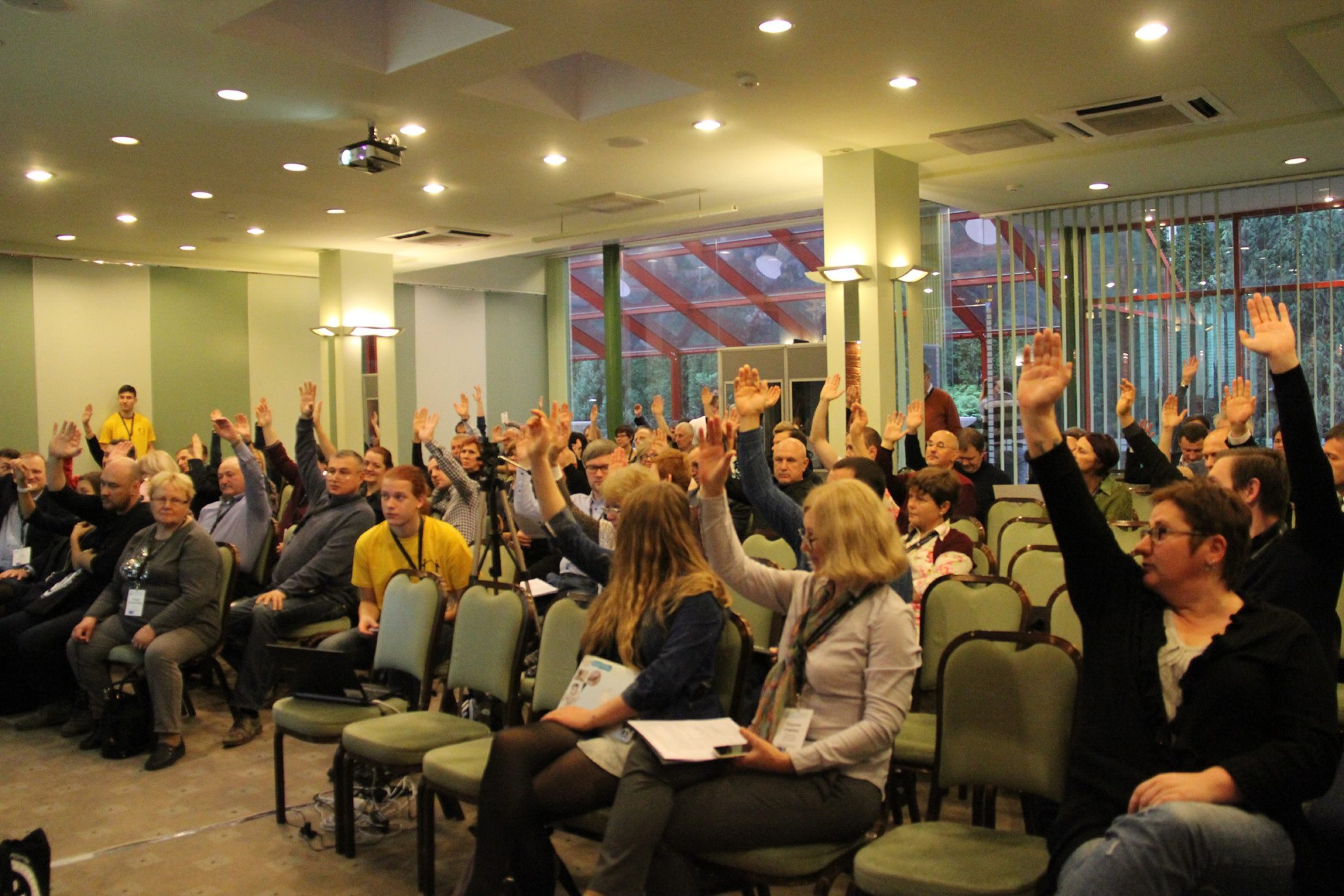Belarus civil society stagnating, research says

Human rights activists vote for the adoption of the resolution of the 4th Belarusian Human Rights Forum on October 21, 2017.
“After three years of gradual improvement, the sustainability of Belarusian CSOs stagnated in 2017, with deterioration in two dimensions—legal environment and financial viability—and improvement in three dimensions—advocacy, service provision, and public image,” says the 2017 Civil Society Organization Sustainability Index by the United States Agency for International Development, the Bureau for Democracy, Conflict and Humanitarian Assistance and the Center of Excellence on Democracy, Human Rights and Governance.
The Belarus section prepared by the International Educational NGO ACT reports worsened legal environment, which resulted in harassment of CSOs and activists involved in mass protests in February and March 2017.
“CSOs continue to operate in a restrictive legal environment in which the activities of unregistered CSOs are criminalized; the registration procedure is complex,” it said.
The researchers, however, note “a moderate thaw in relations between public officials and CSOs”, although interaction between CSOs and the state continued to be limited. The state does not provide adequate feedback to CSOs’ proposals and public hearings are often organized in a manner that does not give CSOs adequate time to participate.
Among positive developments, the authors mention CSOs’ improved public image.
“CSOs were more proactive in promoting their initiatives, particularly on social media, and media paid more attention to civic activism,” the text says.
With the exception of the targeted harassment of CSOs and activists involved in the protests against Decree No, 3, the government’s attitude towards CSOs became less hostile during the year.
Nevertheless, there were still instances of state media demonizing and discrediting CSOs based on political interests. For example, the official Belarusian media launched a defamation campaign against a group called White Legion, alleging that it wanted to overthrow the government.
In addition, a number of national surveys showed that CSOs and activists were generally perceived either positively or neutrally during the year and that public trust in the sector grew slightly.
“In 2017, human rights CSOs adopted the professional and ethical Principles of Human Rights Work in Belarus. However, there is no code of ethics for the sector as a whole,” says the research.
CSOs focused on developing their organizational capacities and financial viability, with a special focus on local fundraising. Notably, CSOs and activists collected over $600,000 through crowdfunding platforms—twice as much as in 2016.
Meanwhile, CSOs continued to have limited access to both local and foreign funding. The latter was due to revised policies by key international donors.
As of January 1, 2018, there were 2,856 registered public associations in Belarus, including 223 international, 762 national, and 1,871 local associations; and 41,760 registered branches of public associations. Other registered entities include 29 trade unions, 39 unions (associations) of public associations, 195 foundations, and seven national governmental public associations. One hundred seventy-two new CSOs were registered during 2017, including 150 new public associations (six international, 27 national, and 117 local associations) and 22 new foundations. However, registration continues to be problematic and over a dozen public associations were refused registration in 2017. Some CSOs also register as not-for-profit establishments with local executive committees, although there is no official data available on how many of these there are. Some organizations also continue to register abroad or operate without registration due to the unfavorable legal environment in the country. About 200 Belarusian CSOs are registered in other countries, including Lithuania, Poland, and the Czech Republic.


















